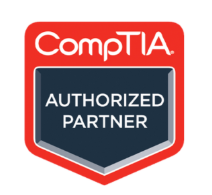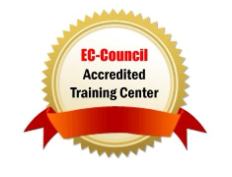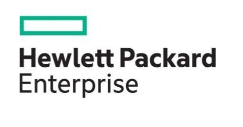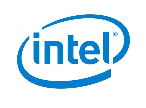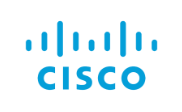
HIPAA Compliance Services
HIPAA sets strict standards for safeguarding Protected Health Information (PHI), with non-compliance risking penalties. At AABGM, we offer tailored solutions to help your organization meet HIPAA requirements and secure patient information effectively.
Process
We offer a reliable, proven approach that businesses can trust for precise and efficient compliance.
AABGM’s HIPAA Compliance Solutions
At AABGM, we offer end-to-end HIPAA compliance services designed to mitigate risk and ensure your organization adheres to all relevant regulations. Our team of cybersecurity and compliance experts delivers comprehensive assessments, advanced protection.
Solution
AABGM experts apply diverse expertise to ensure exceptional project outcomes.


Proactive Strategies to Secure Your Sensitive Data.
Risk Assessment & Gap Analysis
Our HIPAA compliance journey starts with a comprehensive risk assessment and gap analysis, identifying vulnerabilities in your systems. We provide detailed reports and actionable steps to close any gaps, keeping your organization compliant and secure.
HIPAA-Compliant Security Architecture
AABGM implements cutting-edge security frameworks that meet HIPAA's rigorous technical and administrative safeguard requirements, including:
Data Encryption: Ensure ePHI (electronic Protected Health Information) is encrypted, both in transit and at rest, using the latest encryption technologies.
Access Controls: Implement robust user authentication and role-based access controls to restrict access to PHI only to authorized personnel.
Audit Controls: Establish comprehensive audit trails to monitor and log access to PHI, ensuring real-time visibility into potential unauthorized activity.
Incident Response & Breach Management
Despite strong defenses, breaches can happen. Our incident response team swiftly detects, contains, and mitigates them, ensuring compliance with HIPAA’s Breach Rule. We offer 24/7 monitoring and a recovery plan to minimize damage.
Compliance Audits & Documentation
Our team conducts regular audits to ensure continued compliance with HIPAA's standards. We also maintain detailed documentation, including security policies, employee training, and incident response, to show compliance during audits.
HIPAA Training & Awareness Programs
Compliance isn’t just about technology—it’s about ensuring your staff understands their role in protecting patient data. We offer ongoing HIPAA training tailored to your organization, equipping employees to handle PHI securely and in line with regulations.

Why Choose AABGM for HIPAA Compliance?
Expertise in Healthcare IT: With years of experience working with healthcare providers, insurers, and business associates, AABGM understands the unique challenges of maintaining HIPAA compliance in the medical sector.
Tailored Solutions: We know that no two organizations are alike. That’s why we provide custom compliance solutions designed specifically to meet your operational and regulatory needs.
Proactive Defense: Our advanced security systems proactively protect your ePHI from evolving cyber threats, giving you the peace of mind that your data—and your patients—are secure.
Frequently asked questions
What is a HIPAA compliance assessment?
A HIPAA compliance assessment is a thorough evaluation of an organization’s policies, procedures, and systems to ensure they meet the standards set by the Health Insurance Portability and Accountability Act (HIPAA) for protecting sensitive patient information, such as electronic protected health information (ePHI).
Is HIPAA Assessment mandatory for Home Health Care Providers?
Yes, conducting HIPAA assessments is mandatory for home health care providers, as well as all other covered entities and business associates, under the HIPAA Security Rule. Organizations must regularly assess their risks and vulnerabilities related to the protection of electronic protected health information (ePHI).
What are the Key HIPAA Rules Regarding Assessments?
HIPAA Security Rule (§ 164.308(a)(1)(ii)(A))
This rule requires covered entities and business associates to perform a risk analysis to assess potential risks and vulnerabilities to the confidentiality, integrity, and availability of ePHI.
Risk analysis must be conducted regularly, typically at least annually, or whenever there are significant changes or incidents.HIPAA Privacy Rule
Although the Privacy Rule does not explicitly require a risk assessment, it mandates that policies and procedures safeguarding PHI be regularly reviewed and updated to ensure compliance with privacy standards.
What are the Consequences of Non-Compliance?
Financial Penalties: Failing to conduct HIPAA risk assessments can result in fines from the U.S. Department of Health and Human Services (HHS) Office for Civil Rights (OCR). Fines range from $100 to $50,000 per violation, with a maximum of $1.5 million per year for repeated violations.
Data Breaches: Without proper assessments, vulnerabilities in security measures can lead to data breaches, causing financial loss, reputational damage, and legal liabilities.
Corrective Action Plans: The OCR may require non-compliant organizations to implement a corrective action plan, involving heightened scrutiny and additional reporting.
How often a home health care provider need to conduct HIPAA assessment?
Home health care providers must regularly conduct HIPAA assessments to maintain compliance with both the Security Rule and Privacy Rule. Here’s a simplified guide on when to perform these assessments:
1. Annual HIPAA Risk Assessments
How Often: At least once a year.
Why: Annual risk assessments help identify security gaps and ensure that policies are updated to protect electronic protected health information (ePHI). This is required under the HIPAA Security Rule.
2. After Major Changes
When: Whenever there’s a significant change to your IT systems, workforce, or operations.
Examples:
New software, cloud providers, or updates to health record systems.
Expanding to new locations or hiring a large number of staff.
Adding new technologies like mobile devices or telehealth platforms.
Changes to business partners or vendors that access ePHI.
3. Incident-Driven Assessments
When: Immediately after any security incidents or data breaches involving PHI.
Why: Assessments after incidents help pinpoint the cause, mitigate damage, and implement safeguards to prevent future breaches.
4. Ongoing Monitoring and Audits
How Often: Continuously or through regular monitoring.
Why: HIPAA compliance is an ongoing process. Continuous audits and monitoring of security systems catch potential risks early and help maintain compliance.
5. Periodic Training and Policy Reviews
How Often: Annually or whenever policies change.
Why: Regular staff training ensures that everyone is aware of how to handle PHI. Policies should also be reviewed and updated at least once a year, and new employees should be trained as part of their onboarding.
Key Takeaways:
Conduct a HIPAA risk assessment annually.
Perform additional assessments after major system or operational changes or following a security incident.
Implement continuous monitoring to address risks before they become major issues.
What are the consequences of non-compliance with HIPAA?
Failure to comply with HIPAA can result in severe financial penalties, ranging from $100 to $50,000 per violation, and can reach up to $1.5 million annually for repeated violations. Non-compliance may also lead to reputational damage and corrective action plans mandated by regulatory authorities.
What is the difference between a HIPAA Security Rule and Privacy Rule assessment?
The HIPAA Security Rule focuses on protecting electronic protected health information (ePHI) through technical, physical, and administrative safeguards. The Privacy Rule, on the other hand, governs how PHI is used, shared, and disclosed, ensuring patients’ privacy rights are upheld.
What does a HIPAA risk analysis involve?
A HIPAA risk analysis involves identifying potential risks to the confidentiality, integrity, and availability of ePHI. This includes reviewing security measures, identifying vulnerabilities, and assessing the potential impact of unauthorized access, breaches, or other security incidents.
How can my organization benefit from continuous monitoring for HIPAA compliance?
Continuous monitoring helps organizations detect compliance issues in real-time, enabling them to quickly address vulnerabilities and minimize the risk of data breaches. It also ensures ongoing adherence to HIPAA requirements between annual assessments.
What is a Corrective Action Plan (CAP) in HIPAA compliance?
A Corrective Action Plan (CAP) is a set of specific steps an organization must take after failing to comply with HIPAA requirements. The plan is usually imposed by the Office for Civil Rights (OCR) following a breach or non-compliance, and it includes regular reporting, policy updates, and employee training.
How can I ensure my employees are compliant with HIPAA regulations?
Regular training and awareness programs are essential to ensure that your employees understand HIPAA regulations, their role in protecting PHI, and how to handle sensitive information securely. This training should be conducted annually or after any significant policy or procedural updates.
Our Training Partners
Our Technology Partners
